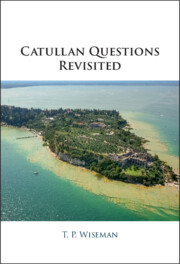Chapter 2 - How Many Books?
from Part I
Published online by Cambridge University Press: 13 October 2022
Summary
The surviving collection of Catullus’ poems evidently derives from a parchment codex edition created probably in the second century AD. This chapter argues that it combined seven previously separate libelli – (1) poems 2–14, (2) poems 14b–53, (3) poem 61, (4) poem 62, (5) poem 63, (6) poem 64, (7) poems 65–116 – that had been designed as Catullus’ self-chosen body of work from 56 to early 54 BC, that is, from the start of his poetic career to the point where his brother’s death changed everything. Poem 1 was a personalized dedication of one particular copy, and poems 54–60, not intended for publication, were added by the owner of one particular copy. The first libellus was the Passer Catulli referred to by Martial, the second was introduced by a poem set in a bookshop. The ‘long poems’ were separate libelli, but their order is probably the poet’s own. Early in 54 BC, persuaded by Caesar to abandon direct abuse and invective, Catullus turned to writing for the stage.
Keywords
- Type
- Chapter
- Information
- Catullan Questions Revisited , pp. 13 - 47Publisher: Cambridge University PressPrint publication year: 2022

